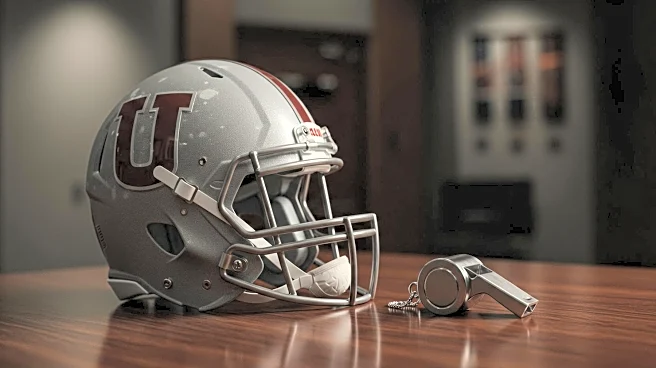What's Happening?
Jim Harbaugh, currently the coach of the Los Angeles Chargers, has been handed a 10-year show-cause penalty by the NCAA due to his involvement in the Michigan Wolverines' advance scouting scheme, known as the Connor Stalions scandal. This penalty follows a previous one-year suspension and a four-year show-cause penalty for recruiting violations. The NCAA's investigation revealed a lack of cooperation from Harbaugh and suggested a broader acceptance of the scheme within the Michigan program. Despite the penalties, Michigan was not banned from postseason play nor required to vacate any wins from their 2023 national title season. The university has announced plans to appeal the penalties.
Why It's Important?
The penalties against Jim Harbaugh highlight ongoing issues of compliance and ethics in college sports, particularly concerning recruitment and scouting practices. The NCAA's decision not to impose a postseason ban on Michigan, despite the severity of the violations, raises questions about the consistency and effectiveness of NCAA enforcement. This situation could impact the reputation and future operations of Michigan's football program, as well as Harbaugh's career, especially if he considers returning to college football. The financial penalties imposed on Michigan also underscore the potential economic consequences for institutions involved in such scandals.
What's Next?
Michigan's decision to appeal the NCAA penalties suggests a prolonged legal and administrative process, which could lead to adjustments in the imposed sanctions. The outcome of the appeal may influence how other universities handle compliance issues and respond to NCAA investigations. For Harbaugh, the show-cause penalty complicates any potential return to college coaching, as any hiring institution would need to justify his employment to the NCAA. Meanwhile, Harbaugh's focus remains on his NFL career, where he is entering his second season with the Chargers.











